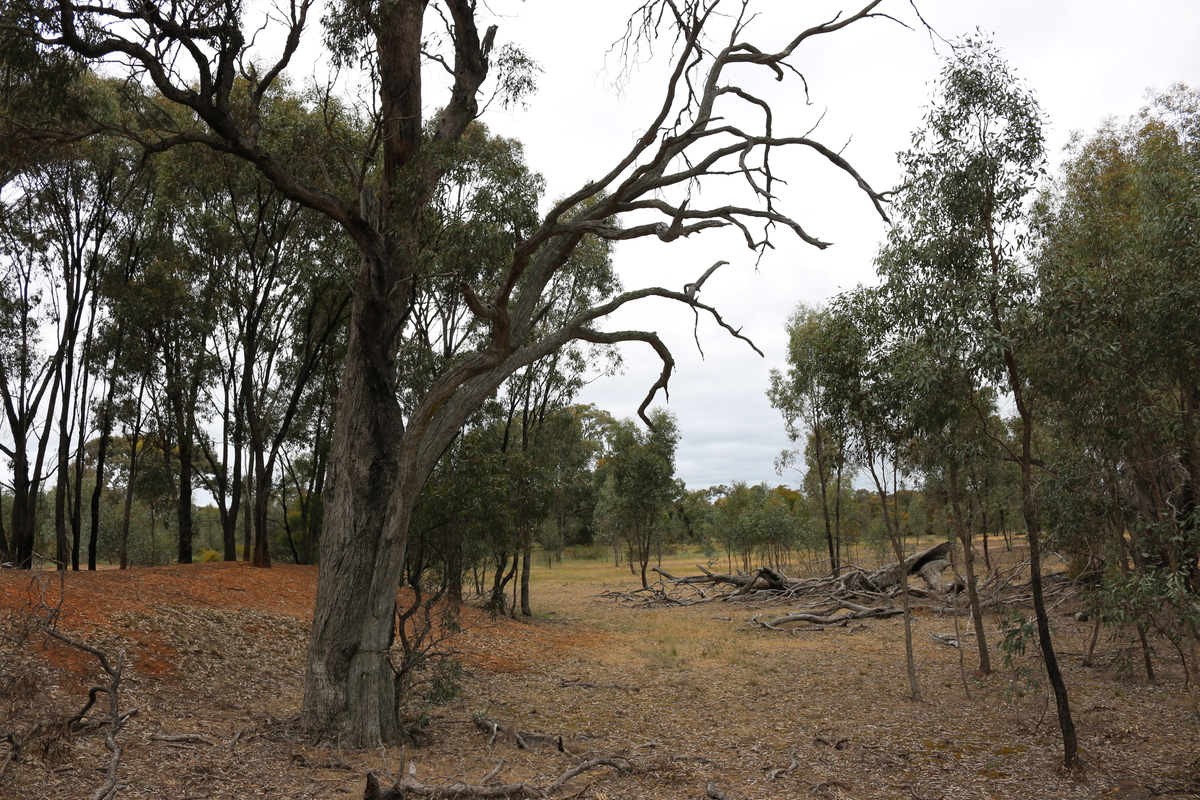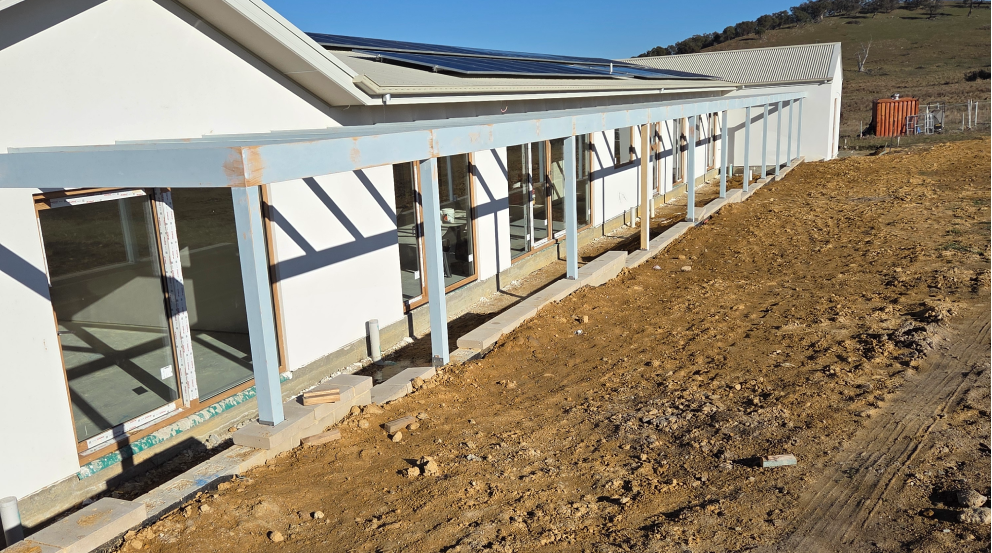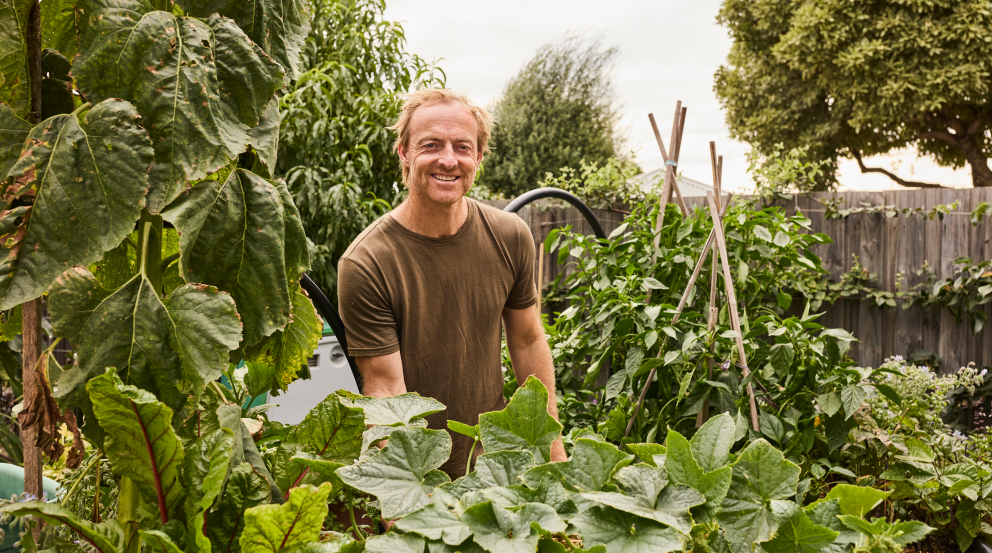Food systems are endlessly complex, encompassing everything from food production through to policies, processing, community access and food waste management. Bank Australia customer and community customer grant recipient Sustain is addressing these intricacies at multiple leverage points, all while helping us make fruitful use of our old billboard ads (and diverting them from landfill).
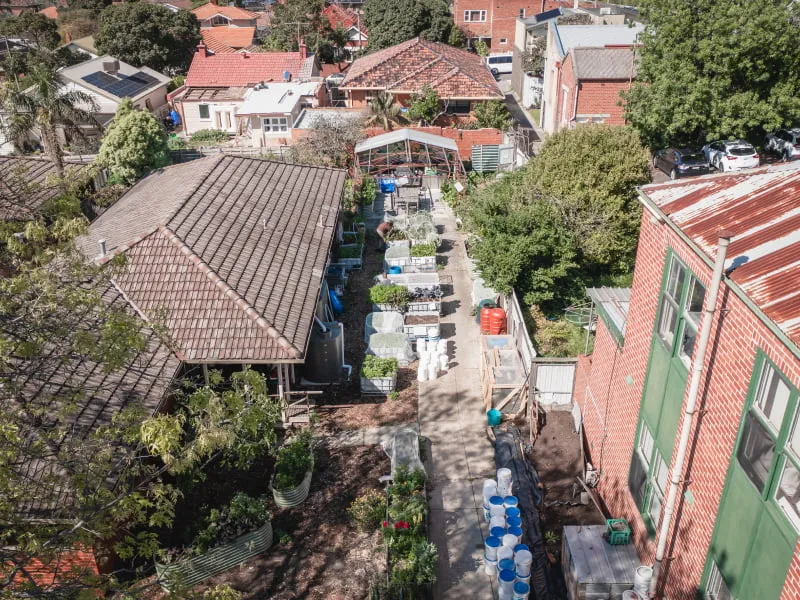
Sustain’s purpose sounds relatively straightforward: “We build food systems,” Daniel Eb, the organisation’s Strategic Communications Specialist, tells us. But it’s not so simple. “That is a really tricky thing to do, because food systems are deeply complex.”
It’s not just about making enough food, but also about how food is processed, and whether it’s affordable, accessible, nutritious, and sustainable. “We use the term ‘food justice’,” Daniel explains. “It means different things to different people, but for me, it’s when all people have access to good, healthy food; access to the means to produce that food if they choose; and the ability to come together and live a meaningful, dignified life around food.”
Unfortunately, we still have a way to go to achieve this vision. Of the people living in Victoria, 94% of adults don’t meet the recommended intake of vegetables*, 6% will run out of money to buy food this year**, and each household, on average, throws away $2,136 of wasted food each year***. And the dominance of large supermarket chains means food choices are often guided by corporate interests rather than community needs.
Building a healthier and more sustainable future of food requires targeted and effective interventions. “Sustain works at a couple of different leverage points across the system that we've identified can be particularly powerful,” Daniel says.
Their policy arm works closely with local governments, helping councillors develop and implement food strategies that can make a real systemic impact. Through network building and advocacy, they create coalitions of diverse groups that empower individuals and organisations to unite for food system reform. They also run events, including the Urban Agriculture Forum, which brings together people doing this work all over the country. And on a community level, Sustain operates three community Food Justice Farms around Melbourne where locals can connect and learn through collective gardening, harvest days, and the joys of food cultivation.
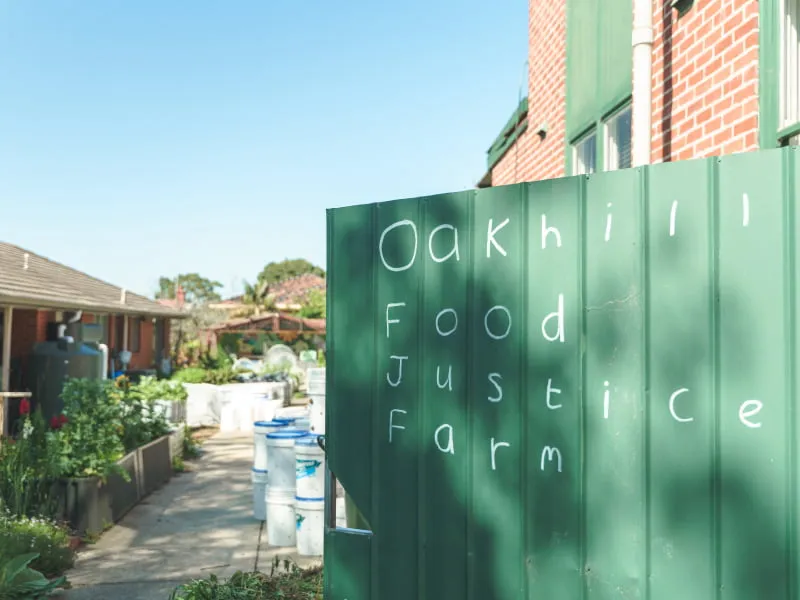
How a Bank Australia grant is helping Sustain achieve its vision…
For Sustain, now in its ninth year, the choice to become a Bank Australia customer was based on shared ethics. “We take all of our partnerships very seriously,” Daniel says. “It’s important to us that there’s some kind of values alignment.”
As a Bank Australia customer, Sustain was able to apply for a community customer grant in 2023, and was successful in securing funding to offer paid youth internships at their Food Justice Farms in Alphington, Oakhill and Bundoora. The small-scale programs introduced bio-intensive market gardening to local young people (under 26) who were facing mental health challenges and barriers to employment. Participants learned new skills, explored new employment pathways and benefitted from the therapeutic benefits of gardening and spending time outdoors.
“I can talk to this from personal experience,” Daniel says. “I spent six months on our family farm when I was 29 in a bit of a quarter-life crisis and it can bring real peace, being close to the land. These internship programs are an opportunity for young people to feel how food and farming can be a source of healing and inspiration.”
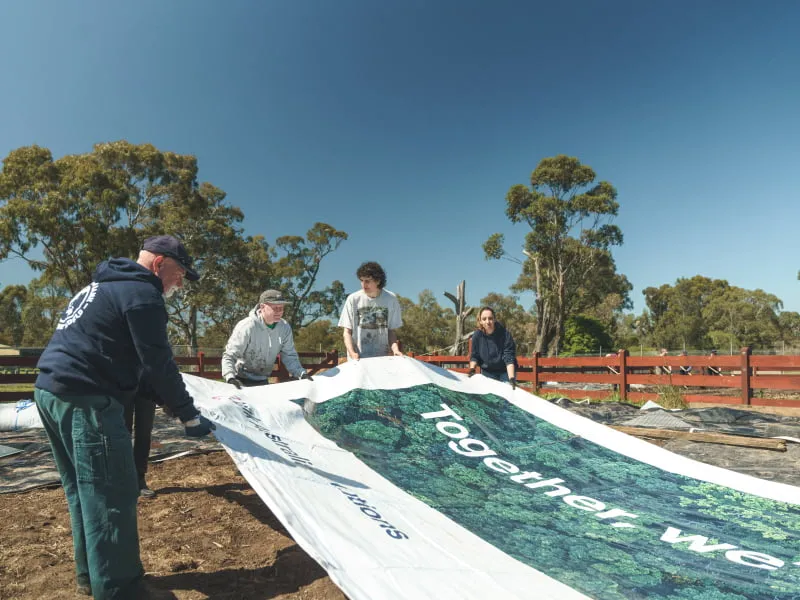
…and how Sustain is helping Bank Australia repurpose old ads
The collaboration between Bank Australia and Sustain doesn’t stop there.
Earlier this year, our marketing department was at a bit of a loose end about what to do with our old advertising billboard skins. “As a customer-owned bank in a competitive financial market, outdoor advertising helps us attract more values-aligned customers,” says Nicole Hunter, Bank Australia’s Head of Marketing. “The bigger our market share, the more of a positive impact we can have on the things our customers care about, like funding clean energy projects, community not-for-profit organisations and our conservation reserve.”
But after serving their purpose, the ad skins were ultimately destined for landfill. “This didn’t sit right with us,” says Nicole. So Bank Australia reached out to various partner organisations to see if anyone had a use for the heavy duty vinyl banners.
Sustain jumped at the chance, recognising that the skins would be extremely useful to help carry out a process called solarisation on a new urban farm in Bundoora. This is a light-touch, chemical-free process of preparing soil for planting by killing off existing weeds and grass by covering them. “You basically starve the plant of sunlight,” Daniel says. “And you do it without any chemical additives or treatment. So you’re keeping a lot of the biological soil life healthy, which will help future crops grow.”
In a win for both the circular economy and (a very small part of) the local food system, it turns out that the old Bank Australia ad skins are the ideal solarisation tarps. “They’re that durable, hardcore thickness you need,” Daniel says. “They can take a whack, they can take hail, they can take six months of sunshine. Normally tarps fall apart under those conditions, but these ad skins are so durable that we’ll be able to use them again and again. They'll actually play a really critical role in expanding the footprint of the farm year after year.”
Learn more about Sustain here, and about Bank Australia’s community customer grants.
* Victorian Population Health Survey (2019)
** Victorian Population Health Survey (2020)
*** Sustainability Victoria (2023)





